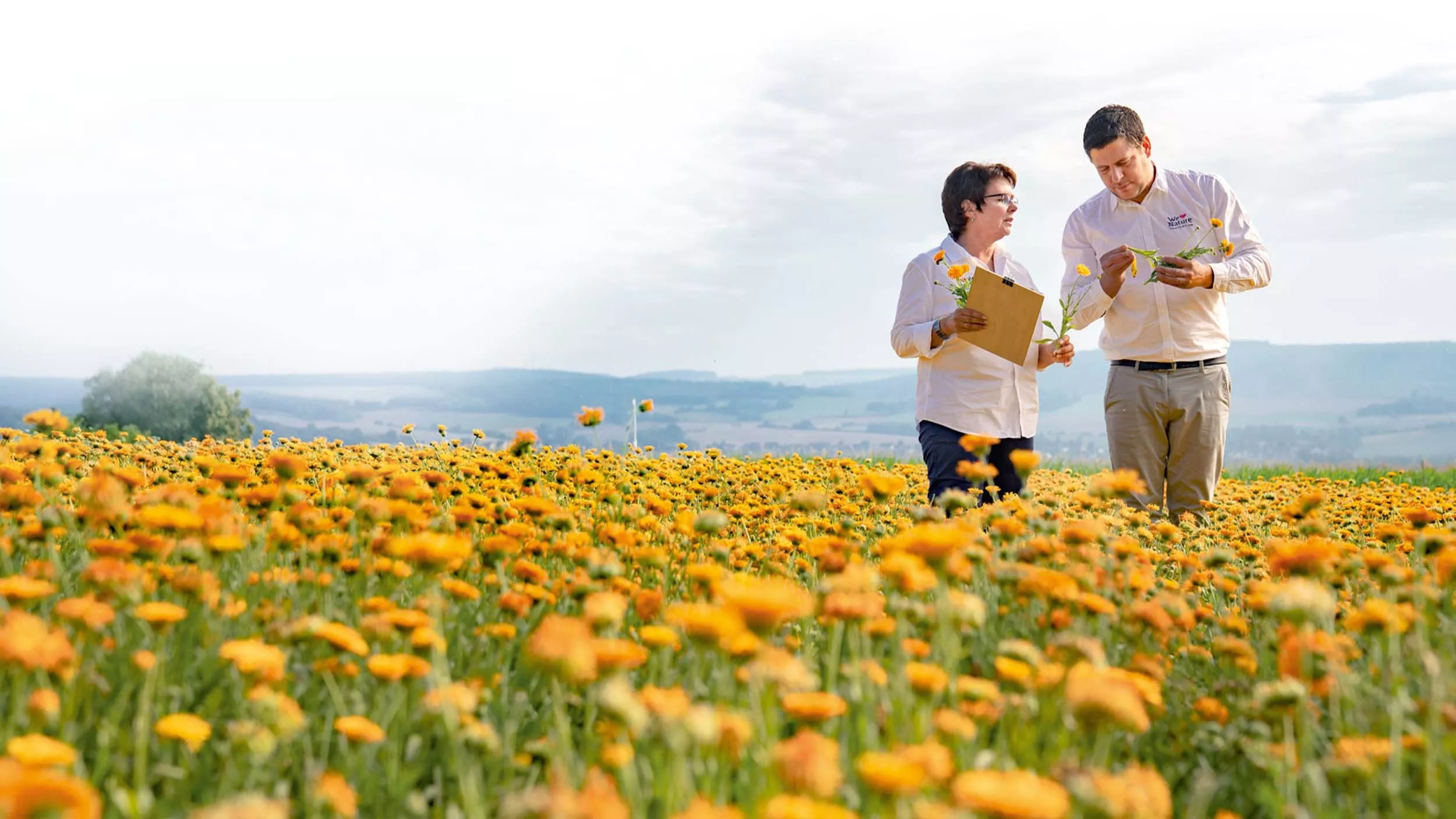At the company headquarters in Nussbaum, Rhineland-Palatinate, the naturopathy specialist Hevert-Arzneimittel cultivates medicinal plants in organic quality and processes them in order to manufacture its medicinal products. Cultivating its own medicinal plants allows the company to guarantee procurement security while also meeting high quality requirements in terms of purity and active ingredient content. This in-house cultivation is a key component of Hevert’s sustainability strategy.
Hevert began growing medicinal plants ten years ago with a view to cultivating, harvesting and processing them for the manufacture of its medicinal products. On the one hand, the objectives included customer satisfaction and ensuring that Hevert products can be prescribed, sold and used with confidence. On the other hand, Hevert wanted everything to come from a single source, from the cultivation and contract farming of medicinal plants to the production of the raw materials and the packaged finished medicinal products, as well as deepening its naturopathic expertise even further.
After checking the soil conditions and cultivating a field of Solidago vigaurea (goldenrod) in 2014, the first cultivation area was expanded in 2018 to include an additional field and a greenhouse for breeding young plants.
The family business requires around 30 species of fresh plants to produce its naturopathic preparations. Every year, up to a ton of fresh plants are processed into mother tinctures, which are used as the starting materials for making medicinal products. Hevert can now cover half of its annual requirements for fresh medicinal plants from its own cultivation. The other half is sourced via contract farming.
Various plant species bloom from spring to late summer. These include Baptisia (wild indigo) and Echinacea (purple coneflower), whose active ingredients support the body’s defenses and are contained in Sinusitis Hevert SL. Lilium tigrinum (tiger lily), which improves depressive moods and has a calming effect on internal restlessness and irritability, is also cultivated. Cimicifuga (black cohosh) relieves spasms and balances mood swings. Both plants are used in Calmvalera drops and tablets.
Cimicifuga, for example, is difficult to procure in the high quality required for the manufacture of medicinal products. “This is one of the reasons why we opted to start our own cultivation,” explains Managing Director Marcus Hevert. “However, the cultivation of medicinal plants is about more than just guaranteeing procurement security. In addition to expertise in growing, caring for and harvesting plants, Hevert focuses on ensuring high quality standards for the raw materials that we use in our preparations. We want to live up to this aspiration, which our customers also share. After all, from the plant in the field to the finished preparation in the hands of the user, our goal is always to meet the strictest quality standards.”
Medicinal plants in organic quality form part of Hevert’s sustainability strategy
The cultivation of plant-based starting materials is covered by the quality guidelines of Good Agricultural And Collection Practice (GACP). To ensure that it complies with the GACP, the cultivation of medicinal plants at Hevert is not only subject to a detailed documentation and control system, but also has to meet biological requirements.
As sustainable business practices have always been at the heart of the company philosophy at naturopathy specialist Hevert, the organic certification process for the cultivation of medicinal plants was initiated and successfully implemented in 2017. Since then, Hevert medicinal plants have been certified as organic.
“As a family business in close touch with nature, we take our responsibility to society and the environment seriously. Conservation and environmental protection are particularly important to us, so we are keen to minimize our impact on the environment along the entire value chain,” explains Managing Director Mathias Hevert. “Our cultivation of medicinal plants is a key component of our sustainability strategy, and we are very proud of being able to guarantee our customers the highest level of purity and active ingredient content with our organic certification.”
As supply chain requirements increase and the product portfolio expands, demand for high-quality fresh plants is also rising. Hevert’s plans for the future therefore include the continuous expansion of the cultivation of medicinal plants and the breeding of more exotic medicinal plants in greenhouses.
